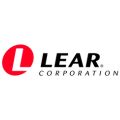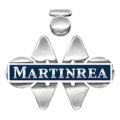
Overview
The automotive industry encompasses the design, development, manufacturing, marketing, and sale of vehicles, including passenger cars, trucks, motorcycles, and commercial vehicles. It is a crucial sector that plays a significant role in the global economy and impacts various aspects of society, from transportation and mobility to technology and environmental concerns. Engineers and designers work together to create new vehicle models, focusing on aspects like aesthetics, safety, performance, and fuel efficiency. Advanced technologies such as computer-aided design (CAD) and simulation software aid in the development process. The manufacturing process involves assembling various components, such as engines, transmissions, chassis, and electronics, to build complete vehicles. This phase requires precision and adherence to quality standards. The industry relies on an extensive network of suppliers who provide raw materials, parts, and components required for vehicle production. The automotive sector is continually evolving due to advancements in technology. Electric and autonomous vehicles, connectivity features, safety systems, and sustainable materials are areas of ongoing innovation. Recent years have witnessed a surge in the development and adoption of electric vehicles (EVs) as a means to reduce reliance on fossil fuels and lower emissions. Additionally, there’s significant research into autonomous vehicles, which have the potential to revolutionize transportation by enabling self-driving cars.
Depending on specific features and functions, GAO Tek’s flaw detector are sometimes referred to as Defect Identifier Anomaly Tracker, Imperfection Finder, Fault Locator, Blemish Detector, Flaw Identifier, Aberration Detector, Irregularity Tracker, Deficiency Scanner, Abnormality Locator, Nonconformity Detector, Inconsistency Finder, Deviation Detector, Aberration Spotter, Weakness Tracker, Discrepancy Identifier, Defect Spotter, Inaccuracy Detector, Anomaly Detector, Inadequacy Tracker.
GAO Tek’s flaw detector have the following applications in automotive industry:
- Weld Inspection: Flaw detectors are used to inspect welds in automotive components such as chassis, frames, and body panels. They can identify weld defects like cracks, lack of fusion, and porosity, ensuring structural integrity and safety.
- Casting and Forging Inspection: Flaw detectors can detect defects like voids, inclusions, and cracks in castings and forgings used in engine components, suspension parts, and more. This ensures the quality and performance of these critical parts.
- Surface Crack Detection: Flaw detectors are employed to identify surface cracks on components like engine blocks, cylinder heads, and transmission housings. Detecting these cracks is essential for preventing leaks and failures.
- Bearing Inspection: Bearings are vital components in automotive systems. Flaw detectors can identify defects such as pitting, spalling, and surface cracks in bearings, helping to prevent premature failure.
- Axle and Drive Shaft Inspection: Flaw detectors can be used to inspect axles and drive shafts for defects such as fatigue cracks and material inconsistencies that could lead to catastrophic failures.
- Wheel and Rim Inspection: Detecting cracks or deformities in wheels and rims is crucial for vehicle safety. Flaw detectors can help identify these issues before they lead to accidents or failures.
- Pressure Vessel Inspection: Automotive systems like air conditioning and fuel storage may involve pressure vessels. Flaw detectors ensure that these vessels are free from defects that could compromise their integrity.
- Suspension Component Inspection: Flaw detectors are used to inspect suspension components for cracks, voids, or other defects that could affect ride quality and safety.
- Safety System Inspection: Components related to safety systems, such as airbags and seatbelt attachments, are inspected using flaw detectors to ensure they are free from defects that might affect their functionality in an accident.
- Composite Material Inspection: Flaw detectors are used to assess composite materials used in modern vehicles, like carbon fiber components, to detect delamination, voids, and other defects.
- Corrosion Detection: Flaw detectors can identify hidden corrosion or rust beneath paint and coatings, helping to prevent structural degradation.
- Ultrasonic Testing for Thin Parts: Ultrasonic flaw detectors are often used for inspecting thin parts like sheet metal for microscopic defects that could compromise the material’s integrity.
- Quality Control in Manufacturing: Flaw detectors are integrated into manufacturing processes to ensure that components meet quality standards before assembly, reducing the risk of defects reaching the end product.
More information on flaw detector and their applications in other industries can be found on this page
This category page lists related products.
GAO Tek’s targeted markets are North America, particularly the U.S., Canada, Mexico, and Europe. Hence, in addition to English, this website gaotek.com is offered in other major languages of North America and Europe such as Spanish, French, German, Italian, Polish, Ukrainian, Romanian, Russian, Dutch, Turkish, Greek, Hungarian, Swedish, Czech, Portuguese, Serbian, Bulgarian, Croatian, Danish, Finnish, Norwegian, Slovak, Catalan, Lithuanian, Bosnian, Galician, Slovene, Latvian, Estonian, Welsh, Icelandic, and Irish.
Complying with Automotive Industry Standards
GAO Tek’s flaw detector comply or help our customers comply with the Automotive Industry standards such as:
- ASTM E1444.
- ISO 3452.
- ASME Section V.
- EN 1330 series.
Complying with Government Regulations
GAO Tek’s flaw detector comply or help our customers comply with the U.S. government regulations such as
- Federal Motor Vehicle Safety Standards (FMVSS).
- 49 CFR Part 571 – Federal Motor Vehicle Safety Standards (FMVSS).
- 49 CFR Part 585 – Advanced Air Bag Requirements.
- 49 CFR Part 583 – Automobile Parts Content Labeling.
- 49 CFR Part 571.104 – Tire Selection and Rims for Motor Vehicles.
- 49 CFR Part 572 – Anthropomorphic Test Devices (Crash Test Dummies).
- 49 CFR Part 573 – Defect and Noncompliance Responsibility and Reports.
- 49 CFR Part 579 – Reporting of Information and Documents about Potential Unreasonable Risk of Safety Defects.
GAO Tek’s flaw detector comply or help our clients comply with the Canadian regulations such as
- Motor Vehicle Safety Regulations (MVSR).
- Canadian Motor Vehicle Safety Standard (CMVSS) 105.
- Canadian Motor Vehicle Safety Standard (CMVSS) 106.
- Canadian Motor Vehicle Safety Standard (CMVSS) 138.
- Canadian Motor Vehicle Safety Standard (CMVSS) 209.
- Canadian Motor Vehicle Safety Standard (CMVSS) 213.
- Canadian Motor Vehicle Safety Standard (CMVSS) 301.
- Canadian Motor Vehicle Safety Standard (CMVSS) 305.
- Transport Canada’s Vehicle Recalls Database.
- Transport Canada’s Vehicle Certification Guide.
GAO Tek’s flaw detector comply or help our clients comply with the Mexican regulations such as
- Norma Oficial Mexicana (NOM) Series.
- NOM-194-SCFI-2015.
- NOM-199-SCFI-2017.
- NOM-202-SCFI-2017.
- NOM-206-SCFI-2017.
- NOM-213-SCFI-2018.
- NOM-225-SCFI-2019.
- NOM-250-SCFI-2007.
- NOM-283-SCFI-2012.
- NOM-307-SCFI-2002.
- NOM-365-SCFI-2018.
GAO Tek’s flaw detector comply or help our clients comply with the European regulations such as
- Directive 2007/46/EC.
- Regulation (EU) 2018/858.
- Regulation (EU) 2019/2144.
- Regulation (EU) No 661/2009.
- Regulation (EU) No 2018/858.
- ISO 9001.
- ISO 17025.
- ISO 9712.
- ECE Regulations.
Case Studies of Flaw Detector in Automotive Industry
Flaw detector are sometimes called as Defect Identifier Anomaly Tracker, Imperfection Finder, Fault Locator, Blemish Detector, Flaw Identifier, Aberration Detector, Irregularity Tracker, Deficiency Scanner, Abnormality Locator, Nonconformity Detector, Inconsistency Finder, Deviation Detector, Aberration Spotter, Weakness Tracker, Discrepancy Identifier, Defect Spotter, Inaccuracy Detector, Anomaly Detector, Inadequacy Tracker.
Here are some practical examples of using flaw detector in automotive industry:
An automotive manufacturing plant in the Northeast Region might use flaw detectors to inspect the welds on chassis frames, ensuring that there are no cracks, incomplete fusion, or other defects that could compromise the structural integrity of the vehicles.
A manufacturer of engine components in the Northeast could employ flaw detectors to assess the quality of castings, identifying potential defects like porosity, inclusions, or cracks in components like cylinder heads and engine blocks.
An automotive assembly facility might utilize flaw detectors to inspect safety-critical components such as airbag housings and seatbelt anchors, ensuring that there are no hidden defects that could affect their functionality during an accident.
In the Northeast, where road conditions can be challenging, automotive manufacturers may use flaw detectors to inspect suspension components like control arms and steering linkage for cracks or flaws that could lead to failures.
With the increasing adoption of electric vehicles, flaw detectors could be used to inspect battery packs for any defects, such as internal shorts or weak spots in the cells, ensuring the safety and reliability of the vehicle’s power source.
Flaw detectors might be employed to inspect wheel rims for surface cracks that could lead to tire leaks or wheel failures, ensuring the overall safety of the vehicle.
In the Northeast’s harsh winter conditions, road salt can lead to accelerated corrosion in exhaust systems. Flaw detectors could be used to detect corrosion or perforations that might compromise the exhaust system’s functionality and emissions control.
Flaw detectors might be used to inspect brake components for defects before they are integrated into vehicles, ensuring that critical safety systems function as intended.
Automotive repair shops in the Northeast might use flaw detectors to assess the quality of welds when performing repairs on vehicles, ensuring that the repaired components are safe and reliable.
Pre-owned vehicle dealerships might use flaw detectors to identify hidden rust or corrosion in vehicle frames and body panels, providing transparency to customers about the condition of the vehicles they’re purchasing.
Aluminum Weld Inspection for Electric Vehicle Battery Housing: An automotive manufacturer in Canada producing electric vehicles might use flaw detectors to inspect the aluminum welds on battery housings. This ensures the structural integrity of the housing and prevents potential leaks or failures in the battery pack.
A manufacturer of fuel delivery trucks could utilize flaw detectors to inspect the integrity of welds in fuel tanks and pipelines, ensuring that no defects exist that could lead to fuel leaks or spills during transportation.
A Canadian automotive parts supplier might employ flaw detectors to examine the quality of suspension components, such as control arms and tie rods, ensuring that there are no hidden cracks or flaws that could lead to premature failures.
In Canada’s aerospace industry, an aircraft engine manufacturer could use flaw detectors to assess the integrity of critical engine components, such as turbine blades, to prevent potential defects that might compromise engine performance and safety.
A manufacturer of rail car wheels could utilize flaw detectors to inspect the wheel flanges for cracks or irregularities, helping to ensure the safety and reliability of rail transport systems.
An automotive transmission manufacturer might use flaw detectors to inspect the internal components of transmissions for any defects or irregularities that could impact the transmission’s performance and durability.
A boat engine manufacturer in Canada might use flaw detectors to identify corrosion or material degradation in marine engine cooling systems, preventing overheating and engine damage.
In the manufacturing of heavy-duty trucks, flaw detectors could be used to inspect the frames made from high-strength steel for any hidden defects that might compromise the vehicle’s durability and safety.
In the renewable energy sector, manufacturers of wind turbine blades might use flaw detectors to assess the structural integrity of blades, ensuring they are free from internal defects that could impact performance.
In the development of hydrogen fuel cell vehicles, manufacturers could use flaw detectors to inspect the integrity of fuel cell components, helping to prevent leaks and ensure safety.
Aluminum Casting Inspection for Engine Components: An automotive manufacturer in Mexico could use flaw detectors to inspect aluminum castings for engine components such as cylinder heads and engine blocks. This ensures that there are no defects like porosity or cracks that could impact performance and longevity.
An automotive assembly plant might employ flaw detectors to inspect welds on vehicle frames. This ensures the structural integrity of the frames and helps prevent defects that could lead to safety issues.
A supplier producing airbag housings in Mexico could use flaw detectors to ensure that the housings are free from defects that might compromise the proper deployment of the airbags.
An automotive parts manufacturer might utilize flaw detectors to identify corrosion or weak spots in exhaust systems, ensuring compliance with emissions standards and preventing exhaust leaks.
Automotive repair shops in Mexico could use flaw detectors during collision repairs to assess the quality of welds and structural components, ensuring that repaired vehicles are safe and structurally sound.
Manufacturers of suspension components such as control arms and tie rods might use flaw detectors to ensure the absence of defects that could lead to premature failures.
As electric vehicles become more common in Mexico, manufacturers could use flaw detectors to inspect battery packs for defects that could impact safety and performance.
Manufacturers of tires might employ flaw detectors to assess the quality of tire sidewalls and treads, ensuring that there are no hidden defects that could lead to tire failure.
Flaw detectors could be used to inspect brake system components such as calipers and brake lines, ensuring that there are no flaws that could compromise braking performance.
Manufacturers of crash test dummies might use flaw detectors to ensure the quality and integrity of components used in safety testing.
Rail Car Wheel Inspection: An automotive manufacturing plant in Europe could use flaw detectors to inspect rail car wheels for cracks and defects before they are assembled into the rail systems. This ensures the safety and reliability of train transportation.
An automotive transmission manufacturer might use flaw detectors to inspect gear teeth and other critical components for defects that could impact the performance and durability of transmissions.
In Europe’s aerospace sector, flaw detectors could be used to inspect turbine blades, compressor components, and other parts of aircraft engines to ensure they are free from defects that could compromise engine efficiency and safety.
As electric vehicles gain popularity in Europe, manufacturers could use flaw detectors to inspect battery packs for defects that might affect the vehicle’s performance or safety.
Flaw detectors could be employed to inspect the sidewalls of tires for defects, ensuring that there are no hidden flaws that could lead to tire failure.
Manufacturers of suspension components might use flaw detectors to assess the quality of components like control arms and struts, ensuring that they are free from defects that could impact vehicle handling.
In the automotive industry’s move toward hydrogen fuel cell vehicles, manufacturers could use flaw detectors to inspect fuel cell components for defects that could lead to leaks or performance issues.
Flaw detectors could be used to inspect safety-critical components like airbag housings and seatbelt anchors to ensure that there are no defects that might compromise their functionality.
Automotive assembly plants might employ flaw detectors to inspect welds on vehicle frames, ensuring structural integrity and preventing defects that could impact safety.
Manufacturers of exhaust systems might use flaw detectors to identify corrosion or weaknesses in exhaust components, ensuring compliance with emissions standards and preventing leaks.
GAO RFID Inc. RFID Hardware, a sister company of GAO Tek Inc., is ranked as a top 10 RFID supplier in the world. Its RFID, BLE, and IoT products have also been widely used in Automotive Industry.
Use of Flaw Detector with Leading Software and Cloud Services in Automotive Industry
- Olympus OmniPC Software.
- GE Inspection Technologies XLTR-100 Data Transfer Software.
- Zetec UltraVision Software.
- NDT Solutions CIVA Software.
- Sonatest Sitescan Software.
- NDT Systems FullMatrix Capture Software.
- NDT Automation LINK Flaw Detector Software.
- NDT Solutions C-Scan Analysis Software.
- Rexroth BODAS-Service Software.
- Ashtead Technology Equipment Management Software.
- NDT PaintView Software.
- NDT Varex Imaging NDT1 Software.
- Sonic Softwin Software.
- NDT Lecoeur Electronique Auto-Map Software.
- Omniscan Software.
- Amazon Web Services (AWS).
- Microsoft Azure.
- Google Cloud Platform (GCP).
- IBM Cloud.
- Oracle Cloud Infrastructure (OCI).
- Dropbox Business.
- Box.
- OneDrive for Business.
- Google Drive.
- Dell EMC Elastic Cloud Storage (ECS).
- AWS IoT Core.
- Azure IoT Hub.
- Siemens MindSphere.
- Predix (by GE Digital).
- ThingWorx (by PTC).
- Amazon Web Services (AWS) Analytics.
- Microsoft Azure Analytics.
- Google Cloud BigQuery.
- IBM Watson Analytics.
- Tableau Online.
- Qlik Sense Cloud.
- Domo.
- Sisense.
- Looker.
- TIBCO Spotfire Cloud.
- Panoply.
- Zoho Analytics.
- SAS Viya.
- Alteryx Analytics Gallery.
- Snowflake Data Cloud.
GAO Tek’s Flaw Detector and their applications in other industries are listed on this page.
Related products can be found at this category page.
Meeting Customers’ Demands
Large Choice of Products
In order to satisfy the diversified needs of their corporate customers, GAO Tek Inc. and its sister company GAO RFID Inc. together offer a wide choice of testing and measurement devices, network products, RFID, BLE, IoT, and drones.
Fast Delivery
To shorten the delivery to our customers, GAO has maintained a large stock of its products and is able to ship overnight within the continental U.S. and Canada, and fast delivery to Mexico and Europe from the nearest warehouse.
Local to Our Customers
We are located in both the U.S. and Canada. We travel to customers’ premises if necessary. Hence, we provide a very strong local support to our customers in North America, particularly the U.S., Canada and Mexico and Europe. Furthermore, we have built partnerships with some integrators, consulting firms and other service providers in different cities to further strengthen our services. Here are some of the service providers in Automotive Industry we have worked with to serve our joint customers:
- Enterprise Resource Planning (ERP) Integrators.
- Manufacturing Execution System (MES) Integrators.
- PLM (Product Lifecycle Management) Integrators.
- IoT (Internet of Things) Integrators.
- Cybersecurity Integrators.
- Cloud Integration Specialists.
- Networking and Infrastructure Integrators.
- Data Analytics and Business Intelligence Integrators.
- AI and Machine Learning Integrators.
- Custom Software Integrators.
- Robotics and Automation Integrators.
- Supply Chain Management Integrators.
- Fleet Management Integrators.
- Telematics Integrators.
- Digital Transformation Consultants.
- ERP (Enterprise Resource Planning) Consulting.
- Manufacturing and Operations Consulting.
- Digital Transformation Consulting.
- Supply Chain and Logistics Consulting.
- Data Analytics and Business Intelligence Consulting.
- Cybersecurity Consulting.
- Cloud Computing Consulting.
- IoT (Internet of Things) Consulting.
- AI and Machine Learning Consulting.
- Digital Transformation Consultants.
- Technology Strategy Consulting.
- Software and Application Development Consulting.
- Robotic Process Automation (RPA) Consulting.
- Change Management and Adoption Consulting.
- IT Governance and Compliance Consulting.
- Enterprise Resource Planning (ERP) Integrators.
- Manufacturing Execution System (MES) Integrators.
- PLM (Product Lifecycle Management) Integrators.
- IoT (Internet of Things) Integrators.
- Cybersecurity Integrators.
- Cloud Integration Specialists.
- Networking and Infrastructure Integrators.
- Data Analytics and Business Intelligence Integrators.
- AI and Machine Learning Integrators.
- Custom Software Integrators.
- Robotics and Automation Integrators.
- Supply Chain Management Integrators.
- Fleet Management Integrators.
- Telematics Integrators.
- Digital Transformation Consultants.
GAO Has Many Customers in Automotive Industry
The products from both GAO Tek Inc. and GAO RFID Inc. have been widely used in Automotive Industry by many customers, including some leading companies. Here is more information on applications of GAO RFID Inc.’s products in Automotive Industry
Here are some of the leading companies in the Automotive Industry:
- Ford Motor Company.
- General Motors.
- Stellantis (formerly FCA – Fiat Chrysler Automobiles).
- Penske Automotive Group.
- Cox Automotive.
- Harman International Industriest.
- BorgWarner.
- Roush Enterprises.
- Henkel Corporation.
- AllianceBernstein.
- Tenneco Inc.
- Eaton Corporation.
- Delphi Technologies (now part of BorgWarner).
- Lear Corporation.
- Magna International.
- Alcoa Corporation.
- Bridgestone Americas.
- Martinrea International Inc.


















Contact Us
If you are interested in our products, services or partnering with us, please feel free to contact us by filling out this form:
or email us at sales@gaotek.com
